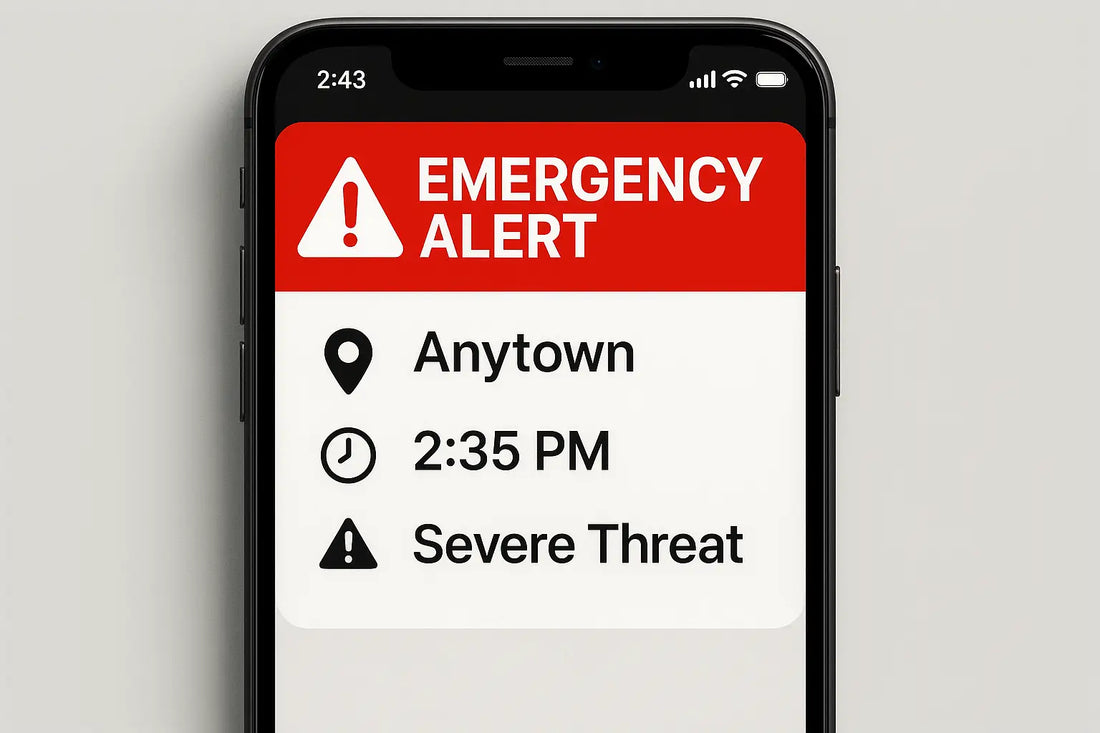
Emergency Alert Tests - What are the government preparing for?
Share
It's completely understandable to feel uneasy when the government conducts emergency alert tests and promotes preparedness campaigns — it can seem like a sign of something bigger happening behind the scenes.
However, there are a few grounded reasons why this is happening, and it doesn’t necessarily mean there's a hidden agenda:
Why Governments Test Emergency Alerts
-
Routine Safety Measures:
Governments are required to periodically test systems like wireless emergency alerts, sirens, and public broadcast interruptions to ensure they work during real emergencies (e.g., natural disasters, terrorist attacks, or infrastructure failures). -
Preparedness Culture:
September is National Preparedness Month in many countries (including the U.S. and Canada). It’s a time when governments push public readiness — not because something specific is expected, but because general awareness and readiness can save lives during unforeseen crises. -
Recent Global Instability:
Ongoing global conflicts, cybersecurity concerns, natural disasters, and climate change have all made emergency preparedness more important. Increased alerts and public campaigns are a response to this — not necessarily an indicator of an imminent threat.
Could There Be Something They’re Not Telling Us?
Governments don’t always communicate perfectly or transparently — and people are right to be skeptical at times. But:
-
If there were a known, imminent threat (like war, cyberattack, or a natural disaster), governments tend to prepare behind the scenes and only alert the public once necessary.
-
Emergency alert tests are not uncommon and have happened for years — though social media makes them more visible and alarming than in the past.
How to Think About This
Rather than panic, it's smart to see this as an opportunity to:
-
Review your emergency kit and evacuation plans
-
Stay informed through reliable news sources
-
Ask questions and stay skeptical — without assuming the worst
